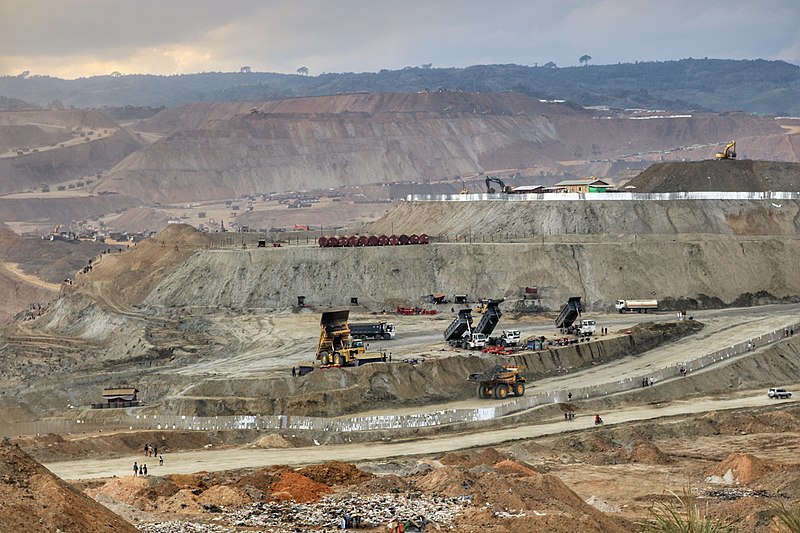Myanmar’s multibillion dollar jade trade is fueling further corruption and conflict in northern Kachin State, a new report released by Global Witness says, risking fears that the industry could become a new “slush fund” under the new military regime.
According to Global Witness, corruption in the jade industry “extended to the top of the Tatmadaw chain of command, including the family of Senior General Min Aung Hlaing, at the time of the coup.” The report names Aung Pyae Sone, Min Aung Hlaing’s son, as a direct beneficiary of bribes paid to the head of the Tatmadaw’s Northern Commander.
“The military controls access to mining areas and, since the coup, the entire regulatory apparatus, so officers can demand huge bribes to allow illegal mining or, in the case of Min Aung Hlaing’s son, to allow the import of dynamite needed for mining,” Keel Dietz, Myanmar policy advisor for Global Witness, told Coconuts Yangon.
The report also details the ways in which jade financially supports the arms trade of ethnic armed organisations like the Kachin Independence Army (KIA), Arakan Army (AA), and United Wa State Army (UWSA), who operate in a “jade-for-weapons” economy that continually fuel Myanmar’s decades-old civil war.
Dietz said that it’s not “surprising” due to jade being a sizable source of revenue for ethnic armed groups operating in Northern Myanmar and for growing the personal wealth of Tatmadaw officers.
The highly lucrative jade trade also created a “zone of cooperation” in and around Hpakant where warring factions collaborated to extract maximum value from the precious stone. However, the rush to extract has led to endemic corruption and unsafe mining practices leading to deadly landslides that have killed hundreds of poor informal freelancers or yemase looking to strike it rich in the unstable rubble left in the wake of industrial mining by heavy machinery.
In June 2020, 172 yemase miners died in a landslide during monsoon season in what’s thought to be Myanmar’s worst mining disaster. A new analysis using satellite and remote-sensing data concluded that poor conditions, mismanagement, and poor design led to the disaster.
Due to the highly illicit nature of Myanmar’s jade trade, it is difficult to estimate the true size of the industry. Estimates vary from US$2.2 billion to US$15.9 billion in the 2014-2015 fiscal year and US$4.1 billion to US$43.6 billion in the following fiscal year according to a Natural Resource Governance Institute study. Smuggling remains the largest issue in Myanmar’s jade industry with up to 90 percent of extracted jade being sold through illicit channels, mainly to China.
“In terms of illegally smuggled jade bound for China, it is difficult to believe in the current context that the Tatmadaw or ethnic armed groups would voluntarily give up jade smuggling – there’s too much money to be made and it is too easy to move jade across the border,” Dietz added.
During the 2015 elections, the NLD government promised to clean up the jade industry and started off by suspending all jade mining licensing to begin addressing the pressing environmental, social, and economic issues surrounding the highly illicit sector.
Despite the NLD government’s attempts, a network of armed actors, including the Tatmadaw and ethnic armed organisations, military companies, and crony businesses, continued to operate with little to no legal oversight and ramped up their efforts in a “frantic resource grab.”
When the Myanmar military took power on Feb. 1, they set back decades of reform in the country’s natural resource governance and reform, and squashed the possibilities of any future reform.
“The international community should recognize that as long as the Tatmadaw remains in power it will be difficult to break the vicious circle of violence and exploitation that marks much of the resource extraction that happens in Myanmar,” Dietz said.
“We need to remove the Tatmadaw from power and begin pushing armed groups out of the industry entirely.”




